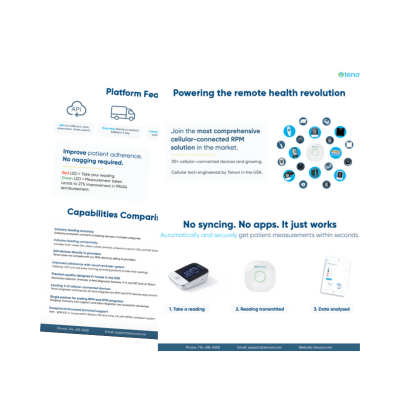From telemedicine and health apps to wearable devices and online health information, digital innovations are revolutionizing the healthcare industry. With this transition comes the need for individuals to develop their digital health literacy. This article explores why digital literacy is crucial and why healthcare professionals should prioritize strategies to improve it.
Digital Health Literacy for Healthcare Professionals
The World Health Organization defines digital health literacy as the ability to seek, find, understand, and appraise health information from electronic sources and apply the knowledge gained to addressing or solving a health problem. In today’s digital age, navigating these complexities is essential. With a strong understanding of digital health literacy, healthcare professionals can effectively find, understand, evaluate, and apply health information from digital sources. These skills include information access, evaluation, digital communication, data privacy, and technological proficiency.
What is Digital Health Literacy in Remote Health?
With the rise of telehealth and remote patient monitoring, digital health literacy is vital for effective remote healthcare delivery. Patients who possess these skills can transition smoothly to telehealth services, ensuring continuity of care. Digital health literacy empowers patients to actively manage their health, make informed decisions, manage chronic conditions, and understand treatment options.
In a recent study, healthcare professionals relied on strategies such as assessing patient appearance, non-verbal communication, and language to gauge health literacy. They found some individuals may feign understanding or competence. In particular, patients in rural communities may face additional challenges due to limited WiFi, cellular, or Bluetooth connectivity and the associated higher costs of accessing digital healthcare services.
With the shift towards virtual healthcare environments, it’s essential to establish a clear strategy to assess patients’ understanding of the technology. This involves educating patients on effectively using digital technology and at-home medical devices. User-friendly and ready-to-use out-of-the-box RPM device solutions help older patients and those who struggle to understand technology.
What is Digital Health Literacy in Telehealth?
The key elements in digital health include navigating electronic patient portals and utilizing technology for telehealth appointments. Clinical remote messaging allows patients and healthcare professionals to communicate through secure text messaging. Messages may include administrative information, appointment reminders, or virtual visits.
A virtual health visit is a technology-enabled remote interaction between patients and their providers that addresses the patient’s health. Therefore, learning to access medical information and collaborate virtually in this manner or through apps requires digital literacy.
Enhancing Communication with Healthcare Providers
Patients with a digital health literacy can engage in more meaningful discussions with healthcare providers. They can ask informed questions and better understand their diagnoses and treatment plans, ultimately improving patient-provider relationships. Additionally, In an era of increasing digitization, knowing how to protect sensitive health information online is crucial.
Educating patients equips them with the knowledge of privacy settings and security measures. This can better ensure they use secure and reputable platforms for their healthcare needs.
Digital Health Literacy: Resources
As healthcare continues integrating digital health technologies into patient care, healthcare professionals must prioritize strategies to improve understanding among their patients. By doing so, they can enhance patient-provider relationships, boost caregiver and patient engagement, facilitate the adoption of telehealth services, prevent the spread of misinformation, and ultimately contribute to better health outcomes. In a world where information is just a click away, literacy is the key to successfully navigating the digital healthcare landscape.
Fortunately, several organizations offer valuable resources to enhance digital health literacy. These resources empower individuals to access, evaluate, and utilize digital health content effectively. Below are two notable resources aimed at promoting digital health literacy:
HHS Office of Disease Prevention and Health Promotion
The U.S. Department of Health and Human Services, through its Office of Disease Prevention and Health Promotion (ODPHP), has developed a step-by-step guide to assist in the creation of clear and accessible digital health content. This comprehensive guide is valuable for individuals, healthcare professionals, and organizations designing user-friendly health websites and digital tools. By following the guidelines outlined in this resource, developers can ensure that digital health information is informative and intuitive for users.
Wisconsin Health Literacy
Wisconsin Health Literacy is an organization that provides a range of materials designed to enhance digital health literacy. Among their offerings is a free downloadable digital health literacy curriculum. This resource includes a slide deck with an accompanying script and handouts. It is a valuable tool for educators, trainers, and healthcare professionals who wish to conduct training sessions on digital health literacy. Whether for virtual or in-person sessions, these materials can be tailored to meet the specific needs of diverse audiences, ultimately promoting better understanding and utilization of digital health information.
NNLM and All of Us Program Center
A collaborative effort between the National Network of Libraries of Medicine (NNLM) and the All of Us Research Program aims to empower individuals on the other side of the digital divide with digital health literacy skills. It also encourages them to participate in the All of Us Research Program, a groundbreaking initiative in health research.
Tenovi Support
Through its exceptional technical support services, Tenovi improves digital health literacy for healthcare systems and patients. We take a personalized approach, tailoring solutions to meet clients’ unique needs, all while offering responsive in-house support and continuous improvements based on client feedback. In a nutshell, Tenovi ensures that healthcare providers and patients have the guidance and resources they need to maximize the benefits of remote health monitoring. To learn more, schedule a consultation with a dedicated Tenovi team member.


